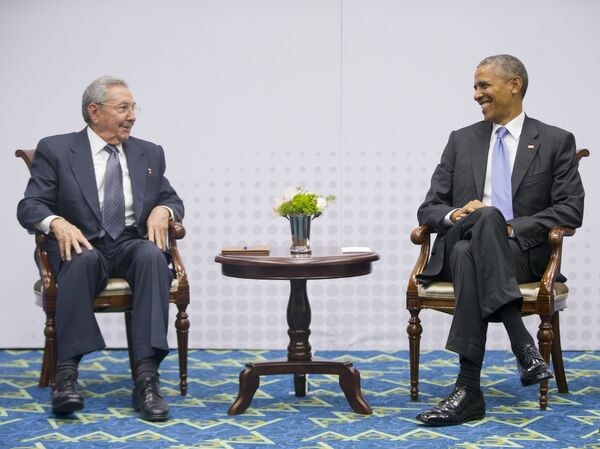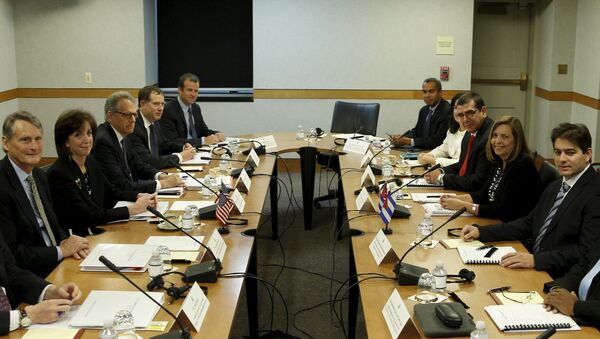WASHINGTON (Sputnik) — According to University of Kent Latin American History Professor George Conyne, this move is very important to Cuban people.
The terrorism designation had been a source of embarrassment both to the Cuban government and to the Cuban people who “did not want to be considered along with nations like Iran on the international stage, and so it’s very important to them,” Conyne explained to Sputnik.
However, Friday’s action will not do anything to change conditions on the ground, where Cuba continues to suffer from more than half a century of US economic sanctions and travel restrictions still in place, Conyne warned.
The administration of US President Barack Obama is currently in the process of negotiating with Cuba to end all sanctions.
“When those go, it really will have the normalization of relations,” Coyne said.

But until then, “In the immediate term, for an ordinary Cuban citizen, for the Cuban government, this has very little meaning,” he said.
Conyne argued that within the Cuban American community in the United States, “We are now seeing a new generation arise the generation that was born after Castro took power.”
“[T]he unfreezing of relations between the two countries will increase the level of travel by US citizens to Cuba.”
Rice University Latin American Studies Professor Mark Jones praised Obama’s ongoing policy of normalizing relations with Cuba as an audacious move, but also one that was long past due.
“The United States' Cuba policy has been an anachronism for years.”
It was derived from “a Cold War logic that no longer makes sense in the present day,” he added.
However, Jones also warned that the entrenched Republican majorities in both the US Senate and House of Representatives could slow down Obama’s drive to restore full relations and boost bilateral trade.
“Opposition among Republicans who possess majorities in the US House and Senate to repealing the Helms-Burton Act is strong, and certainly we should not expect a repeal prior to January of 2017.”
Given the near-certainty that the Republican Party will continue to possess a majority in the US House for the remainder of the decade, he added, “at present the prospects for truly normalized relations between the US and Cuba do not look good for at least the next half dozen years.”
Former South African diplomat Tom Wheeler, who served in Washington, said that the current steps are “about as far as President Obama can go without the support of the Congress.”
"Business people will be cautious about investing in Cuba until the legal environment is further clarified.”
Major changes will only emerge slowly, Wheeler concluded.



